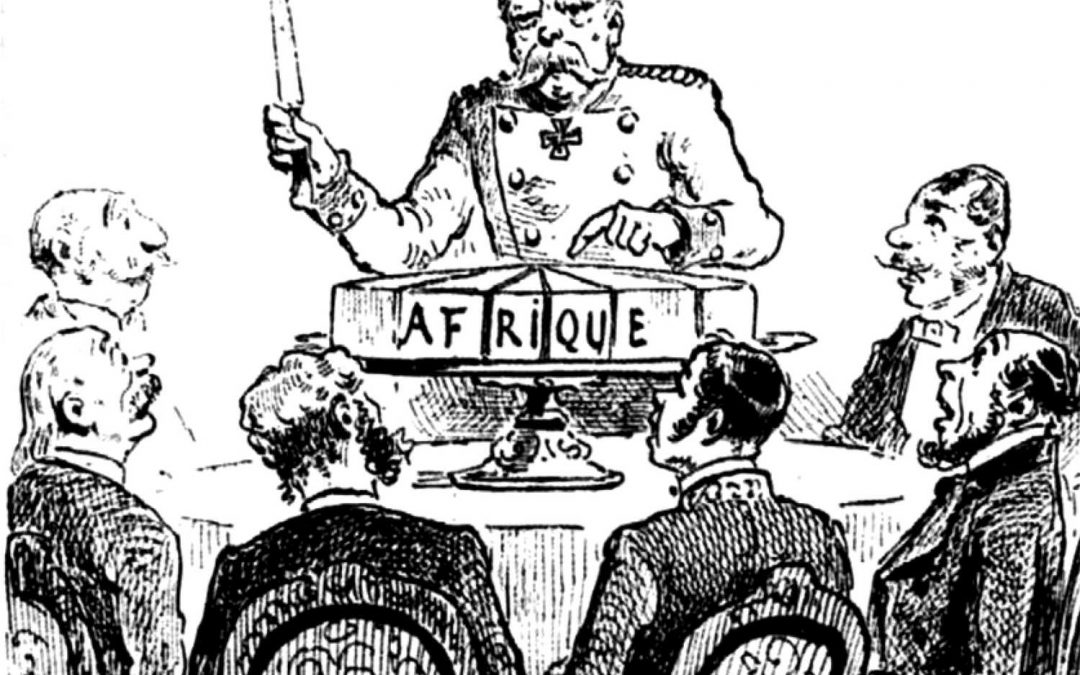
The Berlin Conference: The Sharing of Africa by Europeans
The desire for Africa does not date from today, even if it seems to be consolidating over the years. Two centuries ago, it gave rise to a sinister event: the Berlin conference.
Objective ? Sharing Africa, perceived by the colonial powers of the time as a hen laying golden eggs that everyone wanted to appropriate.
Since the industrial revolution, the progress made by European states in the field of technology, science and medicine combined with the need for raw materials generated by industrialization have led them to embark on a quest for new territories in prospects for commercial exchanges (ivory, mineral wealth, rubber, etc.), geographical discoveries (the sources of the Nile for example) or even the establishment of missions to evangelize the populations.
In the second half of the 19th century, Africa became the center of interest for all of Europe and America when the European countries which were content only to remain on the periphery of the continent to establish trading posts or stopovers, undertake a veritable exodus to the heart of Africa, prompted by numerous discoveries including diamond mines in 1867 in the Transvaal.
During the 1880s, European colonizing aims in Africa intensified until they created tensions between the different powers. A vast, still little explored space attracts particular attention and covetousness: the Congo Basin. The Portuguese claim an ancient presence there, but have to deal with the imperial appetites of the British, the French and the King of the Belgians Leopold II.
Between France and the Belgian king a real competition then arises. Indeed, in the years 1870-1880 France had delegated the explorer Pierre Savorgnan de Brazza, traveler of Italian origin in the service of France who was in charge of traveling through this area. At the same time, the Belgian King Leopold II hired the American explorer and journalist Henry Morton Stanley to explore the territory, sign treaties and negotiate protectorates with sovereigns or chiefs. But, in 1884, Great Britain recognized Portugal’s rights over the mouth of the Congo, thus broadening the claims related to this area.
Faced with growing tensions between Europeans, Portugal then conceived the idea of an international conference between the greatest European powers for the sharing of this region. Thus, on November 14, 1884, at the initiative of German Chancellor Otto Von Bismarck, the Berlin Conference was convened. 14 powers take part in the conference: Germany, Austria-Hungary, Belgium, Denmark, the Ottoman Empire, Spain, the United States, France, Great Britain, Italy, the Bas, Portugal, Russia and Sweden.
During the conference which took place from November 15, 1884 to February 26, 1885 in Berlin, no people or African leaders were invited. The sharing of the African continent without Africans by Westerners. The many discussions held during this conference, which was held in 10 sessions using a map of Africa produced by a German geographer, were carried out with the utmost discretion. At the heart of the debates: freedom of navigation on the Congo and Niger rivers, freedom of trade in the Congo basin, the definition of rules for future occupations on the African coasts.
After several months of discussion, the conference ended with the taking of several important decisions that would serve as a foundation for the European powers for the next stage of this quest: colonization.
The management of the Congo Free State, eighty times larger than Belgium, fell to Leopold II and became, in 1908, the Belgian Congo.
Each European power that took part in this conference obtained a territory. To prevent possible conflicts between Europeans, settlement rules are established by Western countries themselves. Each state must sign a treaty, then have its validity recognized by the members of the conference, before establishing a zone of influence (i.e. a space whose contours must be delimited and over which political domination and economy of a European state is exercised).
This event marks the beginning of the many military expeditions from Europe to Africa at the end of the 19th century, with the aim of subjugating the populations and appropriating the territories. A century and a half later, all African countries are independent and almost all the borders drawn by Westerners remain those of many countries on the continent.


Post a comment